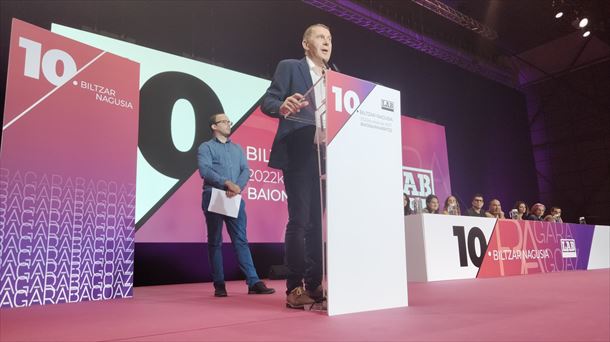The polls rule out an absolute majority for the National Rally, although Le Pen maintains hope and the other parties are trying to form a coalition above it.
The second round of the French elections this Sunday is marked by a duel between the far right, represented by Marine Le Pen’s National Rally, and the “grand coalition” that the rest of the armed forces plan to form in order to win.
After more than 200 candidates, mainly from the left and macronism, withdrew from next Sunday’s second round, in order to prevent the spread of votes and complicate an absolute majority for the far right, the lines of the duel seem to be clearer, but are still blurry.
The publication of the first poll after the withdrawal of candidates, which made the Marine Le Pen’s far-right National Rally (RN) far from an absolute majorityhas given this idea wings.
The Harris Interactive multi-media poll assigns RN 190-220 deputies, far from the 289 that mark the majority in the National Assembly.
He The New Popular Front (NFP) would reach 159-183 deputies if the poll is confirmed, while the Macronist bloc would get 110-136 and the conservative Republicans 30 to 50.
Other parties and candidates (regionalists and various independents) would have 17 to 31 delegates, the survey found.
With these numbers, the only possibility of a majority would be a coalition from conservatives to the far left, and that is difficult to imagine.
In the president’s center-right camp Emmanuel MacronVerbal twists are being formulated to reassure his voters and guarantee them that he will not govern with the most opposition party on the left. Rebellious France (LFI), which until a few days ago was placed on the same level of extremism as the far right.
Macron told the Council of Ministers that if there is no absolute majority for the far-right RN, the unanimous favourite to win, “we will not govern with LFI. The (electoral) resignation does not imply a coalition.”
Lack of definition of the “grand coalition”
Called by some the ‘grand coalition’, by others the ‘provisional government’, or elsewhere the ‘republican front’, this concept attempts to prevent the rise of RN to power and to create an alternative force, since no other group can achieve a majority.
However, this lack of definition appears to be at least intentional until we know the balance of power which each faction will have at its disposal after Sunday’s vote.
The parties of the left-wing New Popular Front believe that the prime minister should go to one of their own, as they are expected to have the largest number of deputies, while the Macronist camp is trying to confirm its current presence in the executive branch.
Meanwhile, RN, which is assured of a relative victory and thought after the first round that it was possible to obtain an absolute majority, is still clinging to that possibility.
Le Pen still relies on an absolute majority. Le Pen assured that she has “great confidence” in still achieving that majority, as “the French have shown that they want change”.
between two candidates
After Tuesday’s resignation, the second round will be decided in 405 seats, which will be contested between two candidates (in most cases with one rival from the RN against only one rival).
There will also be 89 seats contested by three candidates and two in which four candidates will compete.
PNB and EH Bai
In the Iparralde Code, EH Bai has asked to vote for the New Popular Front, like the PNB, which in some cases implies, in the VI. constituency for example, that the electorate of Jeltzale votes for the candidate of EH Bai.
Source: EITB
I am Ida Scott, a journalist and content author with a passion for uncovering the truth. I have been writing professionally for Today Times Live since 2020 and specialize in political news. My career began when I was just 17; I had already developed a knack for research and an eye for detail which made me stand out from my peers.



